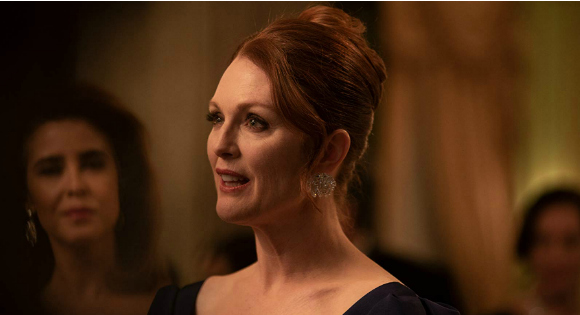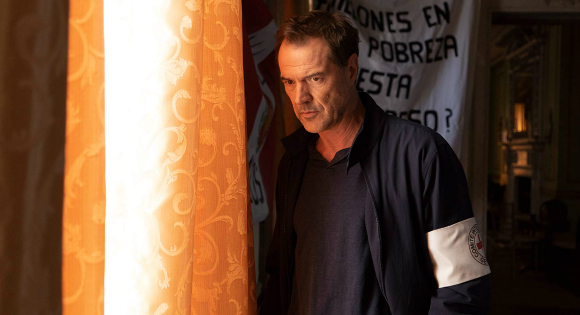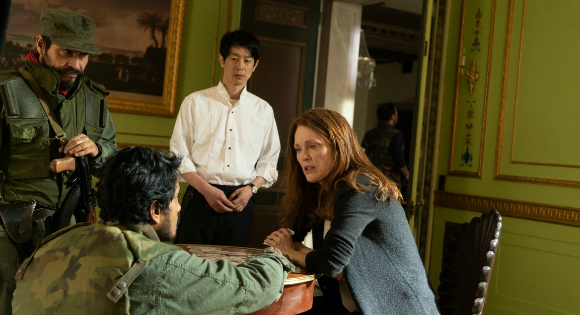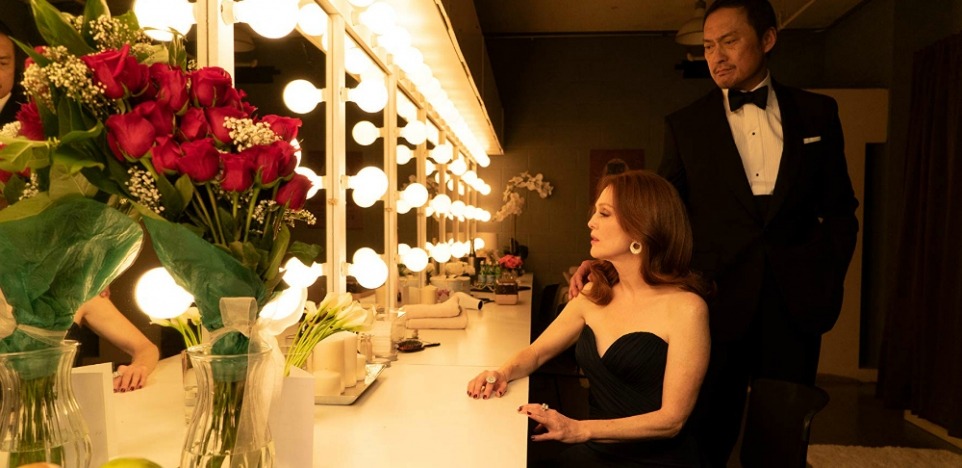"The secret of the musical life is to be open to vibration at every level, to appreciate it wherever you find it. . . . Every sound is like the first Word, a creation story in itself. Sound is the audible form of vital energy that passes through your life."
These profound words on the mysteries of music are by W.A. Mathieu from his book The Musical Life: Reflections on What It Is and How to Live It.
- Have you ever felt swept away or gotten goose bumps while listening to a powerful piece of music?
- Have you ever been so moved by a song that you began to cry?
- Can you think of two or three musical selections that incarnate beauty for you?
- Have you ever had the experience of a song coming on the radio just when you needed it most?
If you answered "yes" to any of these questions, then you are ready to experience and savor Bel Canto, a thought-provoking drama directed by Paul Weitz from a novel by Ann Patchett.

Roxanne Cross (Julianne Moore), a famous American opera star, has come to a Latin American country to perform for a private audience at the Vice President's home. The event has been set up to impress Katsumi Hosokawa (Ken Watanabe), a Japanese businessman who is considering building a factory in the country. He is a huge fan of the singer.
Everything is thrown into chaos, however, when a terrorist group breaks into the concert and takes all the politicians, business people, and others hostage. They demand that the government release all their comrades from prison. A Red Cross intermediary (Sebastian Koch) tries to negotiate a settlement between the authorities outside and the gunmen, but ideological and socioeconomic differences are too great.

Inside the mansion, however, a détente arises from the universal language of music. After their water is cut off, Roxanne performs from the balcony to remind the government authorities of what is at stake. Later, after hearing one of the captors singing, she offers to give him lessons, pointing out how many great opera singers have come from Latin America. Romances are sparked, and the hostages and the terrorists even engage is a lively game of soccer.

A major challenge of the spiritual life is to reach across divides. Sometimes words – even those of a skilled negotiator – are not enough. It takes something else to remind people of what they share in common: the exhilaration of a game, the attraction of an intimate relationship, or the beauty and soul-nourishing vibrations of music.
Other Films that Celebrate the Healing Power of Music
- The Shawshank Redemption takes place in a prison. It's a brutal and oppressive place. The sounds are sinister, and the silence is eerie. One day a prisoner who is working in the library slips into the main office. He locks the door and puts a duet from Mozart's Marriage of Figaro on the prison's sound system; it wafts over the prison yard. This beautiful music is like manna from heaven. The men stand in stillness, letting the sounds wash over them. It is a moment of grace.
- Playing for Time is based on the memoir of Fania Fenelon (Vanessa Redgrave), a half-Jewish Cabaret singer and pianist who was imprisoned in Auschwitz during World War II. The screenplay by Arthur Miller focuses on the morally ambiguous politics of survival and provides a rounded look at some of the tactics Jewish prisoners used to retain their humanity in the face of Nazi barbarity. One of these tactics involved music as a source of beauty and transcendence.
- Paradise Road is a triumphant affirmation of the human spirit in the face of suffering. Based on true incidents, this drama written and directed by Bruce Beresford tells the experiences of a group of European, Australian, and American women who are captured by the Japanese and put in jungle prison camps during World War II. They start a vocal orchestra to sing classical compositions. This project creates an oasis of beauty and transcendence amidst death, pain, and grift. Even the Japanese guards are awed by the music.
